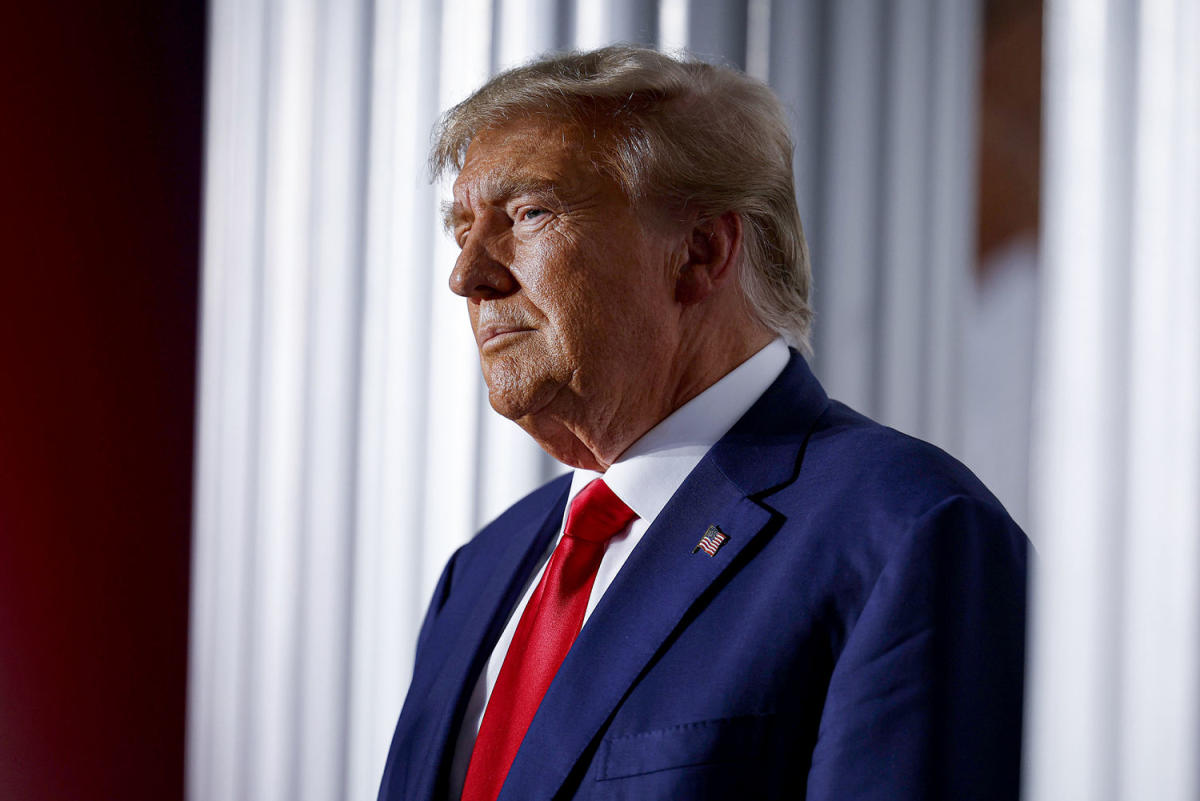As part of Donald Trump’s extraordinary interviews with Time magazine’s Eric Cortellessa, the former president told the national politics reporter that he wasn’t concerned about post-election unrest. “I think we’re going to win and there won’t be violence,” the Republican said.
Two weeks later, Cortellessa sat down with Trump and asked the right follow-up question: “What if you don’t win, sir?”
To a very real extent, it’s astonishing that American politics has reached the point at which such a question even needs to be asked. There have been plenty of media interviews with major-party presidential nominees, presumptive and otherwise, and throughout our history, it’s rarely occurred to journalists to even broach the subject. It’s simply been assumed for generations that losing candidates would not only accept the election results, they’d do so peacefully.
It was a foregone conclusion. It would’ve been bizarre for journalists to even pursue such a line of inquiry. Most presidential candidates would’ve been offended by the question, since it presupposes the possibility that they might respond radically to the democratic process.
And yet, in 2024, Cortellessa was obviously right to raise the question. What’s more, as NBC News reported, the candidate was obviously wrong in how he answered the question.
Asked specifically about the possibility of post-election violence, the Republican told Time, “[I]f we don’t win, you know, it depends. It always depends on the fairness of an election.”
Or put another way, if Trump, driven by his ridiculous and evidence-free assumptions, decides that he doesn’t believe the election was “fair,” he’s not prepared to rule out the possibility of political violence.
These comments came roughly a month after the former president promoted a video via social media featuring a truck emblazoned with a large picture depicting President Joe Biden tied up and lying on his side.
A couple of weeks prior, at a campaign rally in Ohio, the Republican told a group of followers that there would be a “bloodbath” if he loses in the fall. There was some question as to the context — many argued that Trump was referring to the fate of the automotive industry, though the comments were open to interpretation — but it wasn’t as if the former president had earned the benefit of the doubt.
In Trump’s first year in the White House, then-spokesperson Sarah Huckabee Sanders insisted that he had never “promoted or encouraged violence.” Even at the time, it was a difficult line to take seriously.
The Washington Post noted soon after that the claim was “laughable,” adding, “Even if you don’t believe Trump has technically incited violence (which he has been sued for), he clearly nodded toward violence at his campaign rallies. Sometimes it was veiled; other times it was unmistakable. Sometimes he was talking about self-defense, but it was clear he was advocating for a ‘form of violence.’”
Even Republican Sen. Ted Cruz of Texas explained in 2016 that Trump had “a consistent pattern of inciting violence.”
In the years that followed, during and after his term, Trump repeatedly offered evidence to bolster the thesis. It’s tempting to publish a comprehensive list of examples, but such a report would run several thousand words.
A Washington Post analysis, published soon after the “bloodbath” controversy, added, “[I]s it really ridiculous to suggest that the guy who warned of ‘riots,’ ‘violence in the streets’ and ‘death & destruction’ if he were wronged might be gesturing in that direction again? Of course not.”
The repetition becomes definitional: This is who Trump is. He’s a man who believes that reliance on violent rhetoric, imagery, and even veiled threats is acceptable as part of our contemporary political discourse.
What’s more, as Joyce Vance, a former federal prosecutor and an MSNBC legal analyst, recently explained, “We know, and more importantly, he knows, how his followers react when he suggests violence.”
It’s precisely why it’s best not to look away.
This post updates our related earlier coverage.
This article was originally published on MSNBC.com
